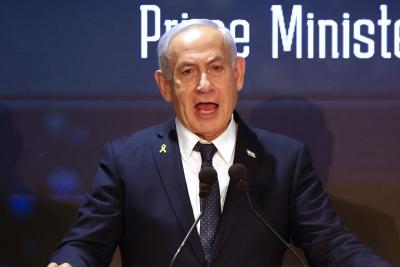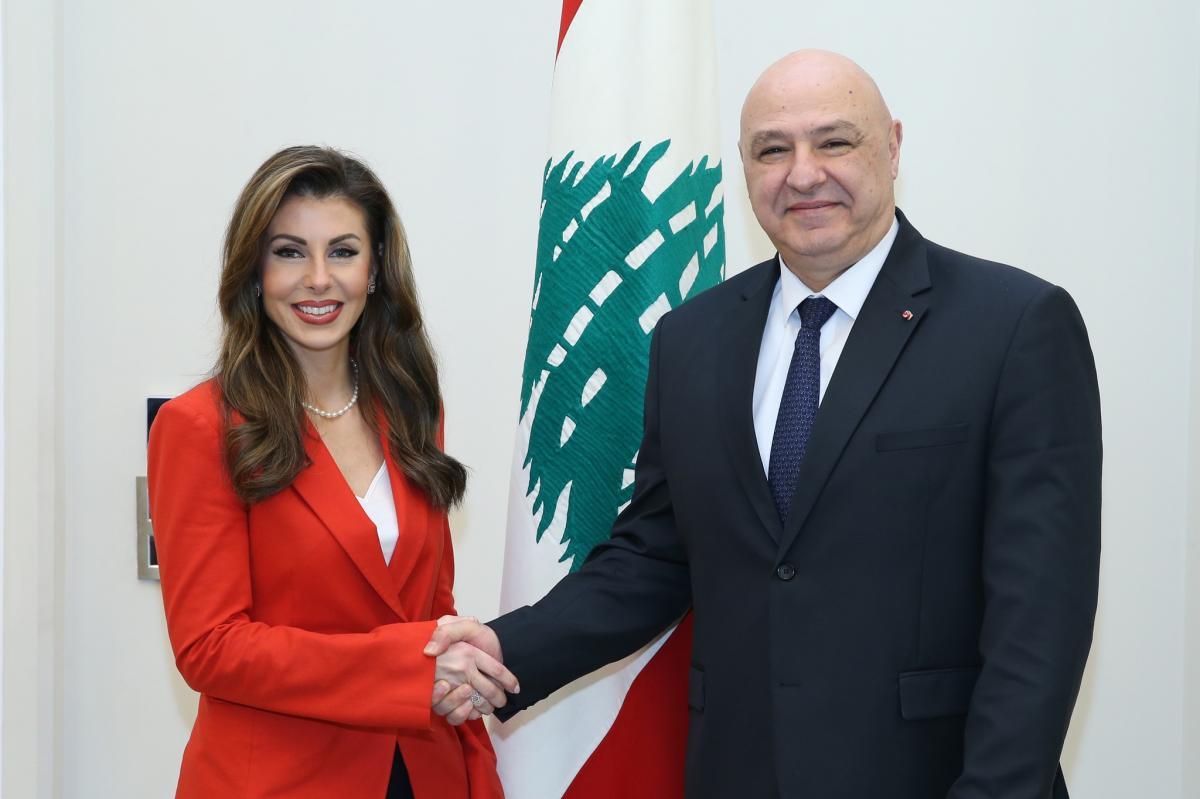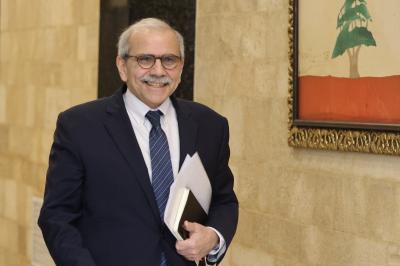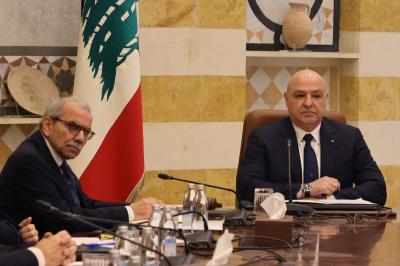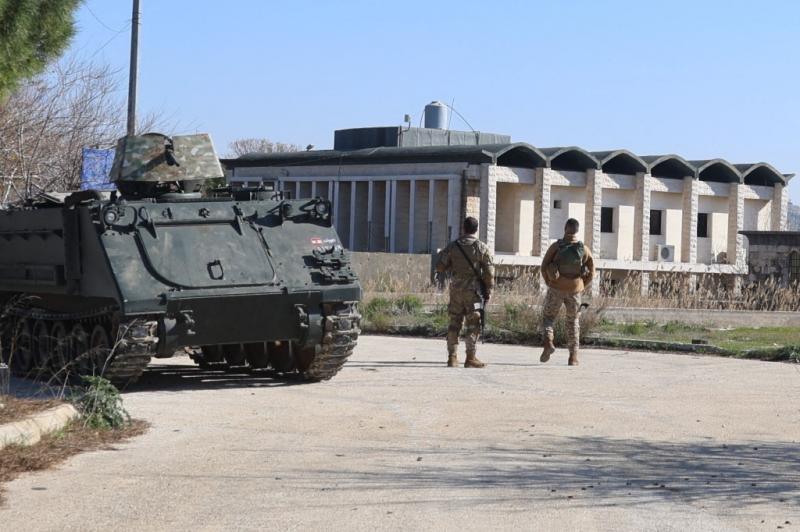To the best of my knowledge, and that of anyone in Lebanon, the diaspora, or across the world, no Lebanese MP has named Morgan Ortagus, the U.S. Deputy Assistant Secretary for the Middle East, as the first Prime Minister of Lebanon in the new presidential era during the mandatory parliamentary consultations.
This Jewish-American official, who succeeded Amos Hochstein—himself an American-Israeli—has made headlines for her ostentatious display: proudly wearing a golden Star of David necklace and a matching ring. Without reservation, she declared after meeting President Joseph Aoun at the Baabda Presidential Palace that she hoped for the end of Hezbollah’s influence, claiming Israel had defeated the group and was grateful for it. She went further, stating unequivocally that “Hezbollah will not participate in any form in the formation of the new Lebanese government.”
This wasn’t a mere wish—it was a categorical statement. While Israel extends its occupation in the South, multiplies its violations, and threatens to resume war against the South and the Beqaa, U.S.-Israeli plans to displace Gaza's population to Jordan and Egypt are becoming clearer, aiming to turn the coastal strip into a new Mediterranean Riviera. And who knows? Perhaps we will witness the permanent settlement of Palestinians where they currently are, with Lebanon absorbing a significant share.
Beyond Ortagus’s polished appearance—widely commented on since her appointment—her remarks, ignored by Lebanese authorities, represent a blatant interference in Lebanon’s internal affairs and a flagrant violation of its sovereignty. This intervention sheds light on the deeper reasons behind the deadlock in forming the government, which became apparent last Thursday.
The incoming government, for which Secretary-General of the Council of Ministers Mahmoud Makkiya was summoned to Baabda to prepare the decrees, was supposed to include two ministers from Hezbollah and two from the Amal Movement, one of whom would hold the Finance Ministry portfolio. The four ministers were nominated by the Shiite duo. But where did things go wrong? The crisis crystallized around the fifth Shiite minister. It was reportedly agreed upon by Parliament Speaker Nabih Berri and President Aoun but rejected by Prime Minister-designate Nawaf Salam, who insisted on appointing someone else.
This fifth minister became the straw that broke the camel’s back. His nomination highlighted the complete lack of consistent criteria in Salam’s government formation process. While monopolizing his sect's representation, Salam refused to include parties or former politicians—only to end up appointing two of them himself. He yielded to Walid Jumblatt's demands by granting him two ministers, named ministers from the Lebanese Forces (a Christian political party), rewarded minor parliamentary blocs while excluding others, and marginalized the Free Patriotic Movement (FPM), which felt underrepresented, by giving it only two minor ministries.
Is Ortagus's public revelation the real reason behind the government's collapse, contrary to many media outlets that blamed the Shiite duo for the stalemate?
Will Prime Minister Salam reconsider his criteria? Or is Ortagus's declaration the roadmap he must follow, whether he likes it or not?
Let’s imagine a government without Hezbollah. According to sources, the Amal Movement would also refuse to participate. The cabinet would then include Shiite ministers from outside the duo. Prime Minister Salam would proceed with the formation, discuss the names with the President, and the decrees would be issued. The government would then present itself to Parliament, where all 27 Shiite MPs (and likely others) would withhold their confidence. If the absence of Shiite voices doesn’t undermine sectarian legitimacy, and if the duo decides to resign from Parliament, what would Lebanon's future look like? Would by-elections be held to fill the vacant seats? And what if the duo reclaimed all 27 seats? If the vacancies remained unfilled, how could a government facing major challenges—from implementing UN Resolution 1701 and rebuilding the South to addressing the financial crisis and organizing upcoming municipal and parliamentary elections—function?
Which Lebanese, regardless of their position, would accept the complete exclusion of an entire community from political life to satisfy a Jewish-American official symbolizing very specific interests? Can anyone genuinely oppose American demands, which increasingly resemble ultimatums, in a political landscape shaped by Washington for over a year and a half in service of Israel?
Many senior Lebanese politicians acknowledge the global influence of the United States, especially today, as it appears to be the undisputed power. As former President Camille Chamoun once said: “Opposing them is difficult; their friendship is humiliating.”
Between this difficulty and humiliation, what will Prime Minister Salam choose? He knows American politics up close and personal, having experienced their reactions to his judicial decisions against Israel during his tenure at the International Court of Justice.
Does he believe he is a favored ally of the Americans, capable of playing hard to get? Or will he reassess his strategy after observing his community’s stance during the commemoration of Rafic Hariri’s assassination on February 14, the Shiite community’s response during the funeral of Hassan Nasrallah on February 23, and the actions of those who were raised on the principle: “The world can crush me, but it will never take my signature,” reigniting the spirit of the March 14 Alliance?
Prime Minister Salam would do well to remember how President Michel Aoun, freshly returned from exile in France and leading the largest parliamentary bloc in 2005, warned then-Prime Minister-designate Fouad Siniora, who had excluded the Free Patriotic Movement from his government: “You will not be able to govern without us. We are the inevitable passage for anyone who wants to govern.”
 French
French




